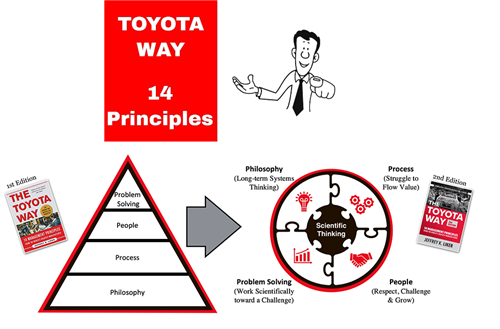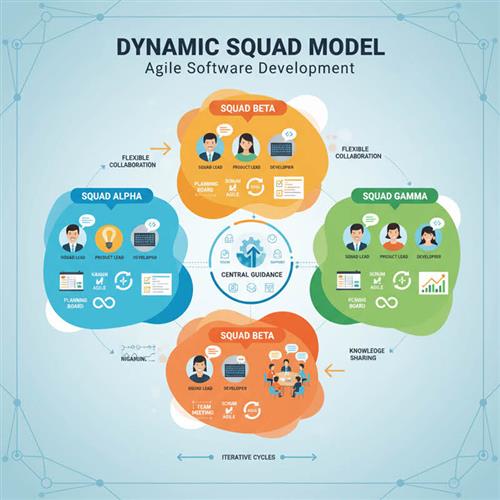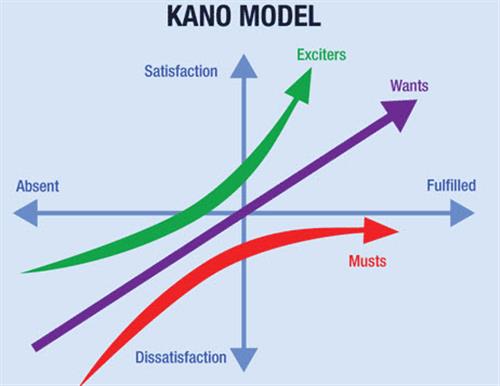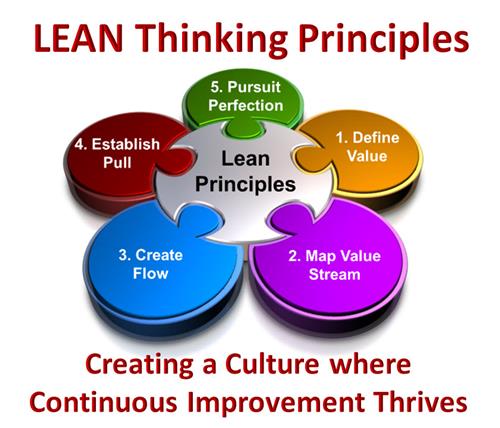
Top Machine Learning Skills Employers Are Looking for in 2025
Last updated: November 07, 2025 Read in fullscreen view
- 05 Oct 2025
 The New Facebook Algorithm: A Paradigm Shift in Content Discovery 66/109
The New Facebook Algorithm: A Paradigm Shift in Content Discovery 66/109 - 11 Dec 2025
 15+ US ReactJS Companies Shaping the Future in 2026 64/122
15+ US ReactJS Companies Shaping the Future in 2026 64/122 - 06 Dec 2025
 Enterprise Operations 2.0: Why AI Agents Are Replacing Traditional Automation 48/83
Enterprise Operations 2.0: Why AI Agents Are Replacing Traditional Automation 48/83 - 19 Oct 2025
 10 Best AI SDR Tools Actually Tested by Sales Teams (2026) 47/118
10 Best AI SDR Tools Actually Tested by Sales Teams (2026) 47/118 - 25 Nov 2025
 How AI Agents Are Redefining Enterprise Automation and Decision-Making 46/96
How AI Agents Are Redefining Enterprise Automation and Decision-Making 46/96 - 06 Nov 2025
 Top 10 AI Development Companies in the USA to Watch in 2026 41/90
Top 10 AI Development Companies in the USA to Watch in 2026 41/90 - 18 Oct 2020
 How to use the "Knowns" and "Unknowns" technique to manage assumptions 38/1089
How to use the "Knowns" and "Unknowns" technique to manage assumptions 38/1089 - 01 Nov 2023
 Difference between Vendor and Subcontractor 38/1032
Difference between Vendor and Subcontractor 38/1032 - 01 Jul 2025
 The Hidden Costs of Not Adopting AI Agents: Risk of Falling Behind 38/164
The Hidden Costs of Not Adopting AI Agents: Risk of Falling Behind 38/164 - 03 Oct 2025
 Top CMS Trends 2026: The Future of Digital Content Management 37/55
Top CMS Trends 2026: The Future of Digital Content Management 37/55 - 02 Dec 2025
 The Question That Shook Asia: What Happens When We Ask AI to Choose Between a Mother and a Wife? 37/63
The Question That Shook Asia: What Happens When We Ask AI to Choose Between a Mother and a Wife? 37/63 - 20 Dec 2025
 The Future of IT Consulting: Key Trends for 2026–2030 35/67
The Future of IT Consulting: Key Trends for 2026–2030 35/67 - 03 Dec 2025
 Templafy Features Explained: The Ultimate Guide to Streamlined Content Management 33/59
Templafy Features Explained: The Ultimate Guide to Streamlined Content Management 33/59 - 03 Nov 2023
 Why Is Billable Viable Product An Alternative To Minimum Viable Product? 31/200
Why Is Billable Viable Product An Alternative To Minimum Viable Product? 31/200 - 16 Oct 2025
 AI Inference Explained Simply: What Developers Really Need to Know 30/58
AI Inference Explained Simply: What Developers Really Need to Know 30/58 - 28 Nov 2025
 How AI Will Transform Vendor Onboarding and Seller Management in 2026 30/82
How AI Will Transform Vendor Onboarding and Seller Management in 2026 30/82 - 27 Nov 2025
 10 AI Tools Every Freelancer Should Use for a Side Hustle in 2026 30/94
10 AI Tools Every Freelancer Should Use for a Side Hustle in 2026 30/94 - 29 Nov 2021
 Memorandum of Understanding (MOU) for Partnership Agreements 28/544
Memorandum of Understanding (MOU) for Partnership Agreements 28/544 - 10 Sep 2024
 Leading Remote Teams in Hybrid Work Environments 27/160
Leading Remote Teams in Hybrid Work Environments 27/160 - 21 Aug 2025
 Top 30 Oldest IT Outsourcing Companies in Vietnam 26/125
Top 30 Oldest IT Outsourcing Companies in Vietnam 26/125 - 05 Jun 2025
 How AI-Driven Computer Vision Is Changing the Face of Retail Analytics 26/135
How AI-Driven Computer Vision Is Changing the Face of Retail Analytics 26/135 - 07 Nov 2025
 Online vs. Offline Machine Learning Courses in South Africa: Which One Should You Pick? 25/70
Online vs. Offline Machine Learning Courses in South Africa: Which One Should You Pick? 25/70 - 01 Oct 2020
 Fail fast, learn faster with Agile methodology 24/1047
Fail fast, learn faster with Agile methodology 24/1047 - 25 Dec 2025
 What Is Algorithmic Fairness? Who Determines the Value of Content: Humans or Algorithms? 23/47
What Is Algorithmic Fairness? Who Determines the Value of Content: Humans or Algorithms? 23/47 - 23 Dec 2024
 Garbage In, Megabytes Out (GIMO): How to Rise Above AI Slop and Create Real Signal 23/60
Garbage In, Megabytes Out (GIMO): How to Rise Above AI Slop and Create Real Signal 23/60 - 31 Dec 2025
 10 Skills to Make You "Irreplaceable" in the Next 3 Years (even if AI changes everything) 22/34
10 Skills to Make You "Irreplaceable" in the Next 3 Years (even if AI changes everything) 22/34 - 21 Nov 2025
 The Rise of AgentOps: How Enterprises Are Managing and Scaling AI Agents 22/69
The Rise of AgentOps: How Enterprises Are Managing and Scaling AI Agents 22/69 - 14 Oct 2021
 Advantages and Disadvantages of Time and Material Contract (T&M) 22/864
Advantages and Disadvantages of Time and Material Contract (T&M) 22/864 - 11 Oct 2022
 Why choose Billable Viable Product (BVP) over Minimum Viable Product (MVP) 22/361
Why choose Billable Viable Product (BVP) over Minimum Viable Product (MVP) 22/361 - 21 Sep 2023
 Abraham Wald and the Missing Bullet Holes 22/666
Abraham Wald and the Missing Bullet Holes 22/666 - 24 Dec 2024
 Artificial Intelligence and Cybersecurity: Building Trust in EFL Tutoring 20/180
Artificial Intelligence and Cybersecurity: Building Trust in EFL Tutoring 20/180 - 13 Dec 2020
 Move fast, fail fast, fail-safe 20/323
Move fast, fail fast, fail-safe 20/323 - 18 Aug 2022
 What are the consequences of poor requirements with software development projects? 20/274
What are the consequences of poor requirements with software development projects? 20/274 - 06 Feb 2021
 Why fail fast and learn fast? 19/450
Why fail fast and learn fast? 19/450 - 17 Mar 2025
 Integrating Salesforce with Yardi: A Guide to Achieving Success in Real Estate Business 19/202
Integrating Salesforce with Yardi: A Guide to Achieving Success in Real Estate Business 19/202 - 09 Jul 2024
 What Is Artificial Intelligence and How Is It Used Today? 18/243
What Is Artificial Intelligence and How Is It Used Today? 18/243 - 21 Dec 2023
 Top 12 Low-Code Platforms To Use in 2024 18/1248
Top 12 Low-Code Platforms To Use in 2024 18/1248 - 23 Jun 2025
 AI Avatars in the Metaverse: How Digital Beings Are Redefining Identity and Social Interaction 18/125
AI Avatars in the Metaverse: How Digital Beings Are Redefining Identity and Social Interaction 18/125 - 12 Jan 2026
 Companies Developing Custom AI Models for Brand Creative: Market Landscape and Use Cases 18/29
Companies Developing Custom AI Models for Brand Creative: Market Landscape and Use Cases 18/29 - 01 Mar 2023
 Bug Prioritization - What are the 5 levels of priority? 17/235
Bug Prioritization - What are the 5 levels of priority? 17/235 - 23 Sep 2021
 INFOGRAPHIC: Top 9 Software Outsourcing Mistakes 17/439
INFOGRAPHIC: Top 9 Software Outsourcing Mistakes 17/439 - 18 Aug 2024
 The Future of Web Development: Emerging Trends and Technologies Every Developer Should Know 17/201
The Future of Web Development: Emerging Trends and Technologies Every Developer Should Know 17/201 - 29 Oct 2024
 Top AI Tools and Frameworks You’ll Master in an Artificial Intelligence Course 17/385
Top AI Tools and Frameworks You’ll Master in an Artificial Intelligence Course 17/385 - 22 Nov 2024
 The Role of AI in Enhancing Business Efficiency and Decision-Making 17/196
The Role of AI in Enhancing Business Efficiency and Decision-Making 17/196 - 20 Feb 2025
 How Machine Learning is Shaping the Future of Digital Advertising 16/123
How Machine Learning is Shaping the Future of Digital Advertising 16/123 - 10 Nov 2022
 Poor Code Indicators and How to Improve Your Code? 16/231
Poor Code Indicators and How to Improve Your Code? 16/231 - 28 Oct 2025
 The Future of Real Estate: Key Trends and Essential Lessons in Digital Transformation 16/60
The Future of Real Estate: Key Trends and Essential Lessons in Digital Transformation 16/60 - 17 Oct 2025
 MLOps vs AIOps: What’s the Difference and Why It Matters 15/100
MLOps vs AIOps: What’s the Difference and Why It Matters 15/100 - 19 Oct 2021
 Is gold plating good or bad in project management? 15/816
Is gold plating good or bad in project management? 15/816 - 31 Dec 2022
 The New Normal for Software Development 15/364
The New Normal for Software Development 15/364 - 02 Dec 2024
 The Intersection of AI and Business Analytics: Key Concepts to Master in Your Business Analytics Course 15/295
The Intersection of AI and Business Analytics: Key Concepts to Master in Your Business Analytics Course 15/295 - 18 Jul 2024
 The 8 Best ways to Innovate your SAAS Business Model in 2024 15/257
The 8 Best ways to Innovate your SAAS Business Model in 2024 15/257 - 27 Jul 2024
 Positive Psychology in the Digital Age: Future Directions and Technologies 15/408
Positive Psychology in the Digital Age: Future Directions and Technologies 15/408 - 30 Dec 2022
 Top 6 Reasons to Partner with TIGOSOFT 14/251
Top 6 Reasons to Partner with TIGOSOFT 14/251 - 26 Sep 2024
 Successful Project Management Techniques You Need to Look Out For 14/401
Successful Project Management Techniques You Need to Look Out For 14/401 - 20 Dec 2021
 What is Hybrid Mobile App Development? 14/378
What is Hybrid Mobile App Development? 14/378 - 19 Apr 2021
 7 Most Common Time-Wasters For Software Development 14/556
7 Most Common Time-Wasters For Software Development 14/556 - 10 Nov 2025
 Multi-Modal AI Agents: Merging Voice, Text, and Vision for Better CX 14/97
Multi-Modal AI Agents: Merging Voice, Text, and Vision for Better CX 14/97 - 31 Dec 2023
 Software Development Outsourcing Trends to Watch Out for in 2024 13/233
Software Development Outsourcing Trends to Watch Out for in 2024 13/233 - 31 Dec 2023
 Software Development Outsourcing Trends to Watch Out for in 2024 13/233
Software Development Outsourcing Trends to Watch Out for in 2024 13/233 - 07 Nov 2022
 Why Design Thinking can save the outsourcing industry 12/194
Why Design Thinking can save the outsourcing industry 12/194 - 08 Oct 2022
 KPI - The New Leadership 12/603
KPI - The New Leadership 12/603 - 31 Oct 2021
 Tips to Fail Fast With Outsourcing 12/392
Tips to Fail Fast With Outsourcing 12/392 - 17 Jun 2021
 What is IT-business alignment? 12/374
What is IT-business alignment? 12/374 - 25 Jan 2025
 The Decline of Traditional SaaS and the Rise of AI-first Applications 12/109
The Decline of Traditional SaaS and the Rise of AI-first Applications 12/109 - 20 Aug 2025
 What Is Agentic AI? The Next Phase of Artificial Intelligence 12/149
What Is Agentic AI? The Next Phase of Artificial Intelligence 12/149 - 09 Oct 2024
 Short-Form Video Advertising: The Secret to Captivating Your Audience 12/134
Short-Form Video Advertising: The Secret to Captivating Your Audience 12/134 - 24 Oct 2025
 AI Agents in SaaS Platforms: Automating User Support and Onboarding 12/77
AI Agents in SaaS Platforms: Automating User Support and Onboarding 12/77 - 23 Sep 2025
 Top 10 eCommerce Website Development Companies in the USA 12/72
Top 10 eCommerce Website Development Companies in the USA 12/72 - 10 Sep 2024
 AI in Email Marketing: Personalization and Automation 11/183
AI in Email Marketing: Personalization and Automation 11/183 - 10 Dec 2023
 Pain points of User Acceptance Testing (UAT) 11/452
Pain points of User Acceptance Testing (UAT) 11/452 - 16 Sep 2022
 Examples Of Augmented Intelligence In Today’s Workplaces Shaping the Business as Usual 10/436
Examples Of Augmented Intelligence In Today’s Workplaces Shaping the Business as Usual 10/436 - 11 Jan 2024
 What are the Benefits and Limitations of Augmented Intelligence? 10/478
What are the Benefits and Limitations of Augmented Intelligence? 10/478 - 03 Jan 2024
 Why Partnership is important for Growth? 10/159
Why Partnership is important for Growth? 10/159 - 28 Dec 2021
 8 types of pricing models in software development outsourcing 10/437
8 types of pricing models in software development outsourcing 10/437 - 17 Feb 2022
 Prioritizing Software Requirements with Kano Analysis 10/304
Prioritizing Software Requirements with Kano Analysis 10/304 - 06 May 2025
 How Machine Learning Is Transforming Data Analytics Workflows 10/187
How Machine Learning Is Transforming Data Analytics Workflows 10/187 - 16 Jan 2026
 Top 10 Most Trusted Web Development Service Providers in 2026 10/27
Top 10 Most Trusted Web Development Service Providers in 2026 10/27 - 09 Sep 2024
 How AI Rewriting Can Improve Your Content’s SEO Performance 9/188
How AI Rewriting Can Improve Your Content’s SEO Performance 9/188 - 19 Dec 2023
 How AI is Transforming Software Development? 9/294
How AI is Transforming Software Development? 9/294 - 12 Mar 2024
 How do you create FOMO in software prospects? 9/167
How do you create FOMO in software prospects? 9/167 - 05 Jan 2024
 Easy ASANA tips & tricks for you and your team 9/200
Easy ASANA tips & tricks for you and your team 9/200 - 16 Aug 2022
 What is a Headless CMS? 8/272
What is a Headless CMS? 8/272 - 21 Aug 2024
 What is Singularity and Its Impact on Businesses? 8/403
What is Singularity and Its Impact on Businesses? 8/403 - 06 Dec 2024
 Steps For Integrating Sustainable Practices Into Business Operations 8/142
Steps For Integrating Sustainable Practices Into Business Operations 8/142 - 22 Sep 2025
 Why AI Is Critical for Accelerating Drug Discovery in Pharma 8/83
Why AI Is Critical for Accelerating Drug Discovery in Pharma 8/83 - 04 Oct 2023
 The Future of Work: Harnessing AI Solutions for Business Growth 7/275
The Future of Work: Harnessing AI Solutions for Business Growth 7/275 - 21 Apr 2025
 Agent AI in Multimodal Interaction: Transforming Human-Computer Engagement 7/188
Agent AI in Multimodal Interaction: Transforming Human-Computer Engagement 7/188 - 15 Apr 2024
 Weights & Biases: The AI Developer Platform 7/189
Weights & Biases: The AI Developer Platform 7/189 - 30 Jul 2024
 The Future of IT Consulting: Trends and Opportunities 6/190
The Future of IT Consulting: Trends and Opportunities 6/190 - 25 Sep 2024
 Enhancing Decision-Making Skills with an MBA: Data-Driven Approaches for Business Growth 6/201
Enhancing Decision-Making Skills with an MBA: Data-Driven Approaches for Business Growth 6/201 - 27 Aug 2025
 How AI Consulting Is Driving Smarter Diagnostics and Hospital Operations 6/100
How AI Consulting Is Driving Smarter Diagnostics and Hospital Operations 6/100 - 06 Nov 2019
 How to Access Software Project Size? 6/249
How to Access Software Project Size? 6/249 - 14 Mar 2024
 Why should you opt for software localization from a professional agency? 6/140
Why should you opt for software localization from a professional agency? 6/140 - 11 Jan 2024
 Entering the Japanese Market: Stacking the Deck and Setting Expectations 6/147
Entering the Japanese Market: Stacking the Deck and Setting Expectations 6/147 - 26 Dec 2023
 Improving Meeting Effectiveness Through the Six Thinking Hats 6/254
Improving Meeting Effectiveness Through the Six Thinking Hats 6/254 - 06 Feb 2024
 What are benefits and drawbacks of co-creating solutions with your clients? 5/224
What are benefits and drawbacks of co-creating solutions with your clients? 5/224 - 18 Jan 2024
 Self-healing code is the future of software development 5/213
Self-healing code is the future of software development 5/213 - 31 Dec 2022
 Future of Software Development Trends and Predictions 5/143
Future of Software Development Trends and Predictions 5/143 - 29 Aug 2025
 How AI Is Transforming Modern Management Science 5/46
How AI Is Transforming Modern Management Science 5/46 - 15 Aug 2025
 Quantum Technology: Global Challenges and Opportunities for Innovators 4/100
Quantum Technology: Global Challenges and Opportunities for Innovators 4/100 - 27 Feb 2025
 How AI Agents are Changing Software Development? 4/186
How AI Agents are Changing Software Development? 4/186 - 12 Sep 2024
 Be Water, My Friend: Fluidity, Flow & Going With the Flow 3/169
Be Water, My Friend: Fluidity, Flow & Going With the Flow 3/169 - 05 Aug 2024
 Affordable Tech: How Chatbots Enhance Value in Healthcare Software 2/169
Affordable Tech: How Chatbots Enhance Value in Healthcare Software 2/169 - 23 Jan 2026
 Top 10 AI Healthcare Software Development Companies in 2026 2/45
Top 10 AI Healthcare Software Development Companies in 2026 2/45
In the year 2025, for the first time, more emphasis than ever before is being placed upon machine learning professionals. Establishments are progressively focused on mechanization, faster data-driven conclusions, efficient information systems, and ground-breaking use of AI. Machine Learning engineers, data scientists, and AI specialists are evolving. Anyway of if you are starting a machine learning career from scratch or are reskilling in a different industry, it is important to be aware of the machine learning skills that employers are looking for.
This article highlights machine learning skills that can help you stand out as a future-ready professional in 2025--and, also, a machine learning courses for you to be able to develop.
Why Machine Learning Skills Matter More Than Ever?
We're in an era where data is no longer plentiful; it's overwhelming. Every interaction on the internet, from a Google search to a Facebook post, is data. Machine Learning (ML) provides the means to work with that data in an intelligent way and has become a key part of digital economies today. With AI continuing to disrupt industries and business models, having skillsets in ML will not only be valuable; it will be essential.
Business and Industry Depend on ML
Businesses in all sectors — finance, healthcare, retail, manufacturing — are already using ML to enhance efficiencies and develop competitive advantages. For example, companies in finance use ML to develop predictive models that flag fraudulent behaviours in real-time. In healthcare, ML models will one-day assist in diagnostics and provide drug discovery. Retailers use ML for their recommendation systems to optimize customer shopping experiences. Today, any professional who knows specific ML skills has become integral to help organizations apply data-driven decision-making and automate cognitively complex processes.
Career Opportunities and Job Security
The number of roles advertised specifically requiring ML skills is exploding. Roles such as Machine Learning Engineer, Data Scientist, and AI Researcher continuously rank among the highest salary and highest demand jobs. As companies of all shapes and sizes continue to look for ways to invest in technology to improve efficiencies, (even during economic downturns) ML will be part of the solution that prevents those companies from facing extinction. Learning these skills will help to protect and future-proof your career.
ML Powers Emerging Technologies
Many disruptive technologies are either wholly facilitated or fundamentally built around Machine Learning. Examples include self-driving cars, voice assistants, facial recognition, and language translations. As technology continues to be an undeniable part of our daily lives, it will be important that developers, but also product managers, product analysts, and decision makers to have at least a simple understanding of how Machine Learning works when attempting to find new value in it.
Democratization of Tools and Education
What is even more encouraging is the ease at which Machine Learning has become accessible, learn-able and usable. Whether through TensorFlow or PyTorch, or through one of the online classes through Coursera, edX, or other providers, virtually anyone with a computer and the desire to learn anywhere in the world can start. This unprecedented accessibility diminishes the skills gap, and makes it possible for innovators with differing backgrounds to compete, collaborate, and contribute to Machine Learning.
Top Machine Learning Skills Employers Are Looking for in 2025
As we enter 2025, Machine Learning (ML) is still leading the way with regard to technology. With its proliferation of applications that have changed how business is conducted, it has become imperative to succeed in nearly every industry that ML is applied. As demand for ML professionals has increased, employers are seeking some or the mix of a larger range of skills that combine technical proficiency with an ability to solve and implement solutions on top of ML capabilities.
Proficiency in Machine Learning Frameworks
An understanding of the most widely used machine learning frameworks like TensorFlow, PyTorch, and Scikit-learn is certainly useful to ML professionals. These modelling and deployment frameworks are corner-stones of building and deploying models quickly and easily. As of 2025 employers expect candidates to have relevant experience with several ML libraries and the ability to compare and select the best framework for specific types of problems.
Deep Learning Expertise
Deep learning, the branch of ML that works with neural networks, is more relevant in 2025 than ever before. With industries ranging from healthcare to self-driving cars, deep learning is enabling growth and improvement in everything from image recognition to natural language processing, to predictive analytics. Employers are increasingly in-need of candidates who possess skills in Convolutional Neural Networks (CNNs), Recurrent Neural Networks (RNNs), or Generative Adversarial Networks (GANs), specifically for the ease with which models can be applied in Production environments.
Advanced Data Processing Skills
Data pre-processing is a core component of the machine learning ("ML") pipeline. With the extensiveness and complexity of the quantity of data that will be obtainable to organizations in 2025, employers will greatly appreciate specialists who can pre-process data. To be competitive, it will be important to be familiar with data cleaning, transforming, and manipulating; knowing about techniques like feature engineering, normalization, and data augmentation will be important to ensure that clean data will be fed to the ML models. There will also be an emphasis on being skilled with pre-processors like Pandas, NumPy, and SQL.
Strong Programming and Coding Abilities
Python will remain the most popular language within the domain of machine learning, but employers are already aware of and looking for candidates who have knowledge of other programming languages like R, Java, and C++. Python proficiency will be an essential competency for writing machine learning models, but the demand for programming will not end with modelling; in 2025, employers will ask that candidates be proficient in coding in order to optimize the performance of their models and to deploy A/B testing to ensure models can scale. The best machine learning professionals will require, or at least be profile candidates based upon their deep understanding of algorithms and data structures, which, in combination would allow the candidate to create solutions that are efficient and scalable.
Cloud Computing and Deployment Skills
As organizations build their infrastructure on cloud, the ability to deploy machine learning models in scale will become a required skill for professionals in this domain. Cloud deployment offers many attractive aspects that will allow machine learning professionals to manage and scale workloads within a context that is purpose built; for example, Amazon, Google, and Microsoft offer ways of adapting to cloud infrastructures, like cloud-native services. In 2025, employers will expect machine learning professionals to be capable in deploying machine learning models in these environments.
How a Machine Learning Course Can Help You Build These Skills?
In today’s fast-changing technological world, machine learning (ML) is one of the most valuable and wanted skill sets. The demand for ML skill was needed, but the skill can appear overwhelming for beginners to fit in, and even for experienced professionals attempting to learn new skills. Taking an organized machine learning course can provide a clear path to acquiring foundational techniques and concepts that prepare you for the job market.
Comprehensive Understanding of Core Concepts
A machine learning course will provide you with the foundation behind ML concepts. Courses like these will also cover many of the important concepts behind ML. Usually, the topics they cover include supervised learning, unsupervised and pipeline learning, reinforcement learning, neural networks, as well as deep learning. Taking a course allows you to gain a better understanding of complex algorithms and techniques built up by manageable lessons, so you are able to understand not only how models work well, but when you should use them and why. Attaining this background knowledge will allow you to tackle real-world problems with confidence and adopt the best ML techniques possible for particular use cases.
Hands-On Experience with ML Frameworks
One of the most beneficial components of a machine learning class is the hands-on experience you get working with the popular ML frameworks and libraries, such as TensorFlow, PyTorch, and Scikit-learn. These are the cornerstones of modern machine learning, and having some experience with them is vital for training and deploying models. An effective course will offer coding activities, projects, and challenges that let you apply the material in practical applications, practicing the tools that employers look for.
Mastering Data Pre-processing and Feature Engineering
In the realm of machine learning, data is often a company's most valuable asset. However, data in its raw form is typically not clean and certainly not ready to be utilized in ML models. Having said that, a machine learning course should teach you techniques for preparing your data for use in a ML model. This is essential because in a real-world data set, you will have to deal with things like missing values, scaling your data, encoding categorical variables, and much more. Additionally, you will learn about feature engineering, this means to convert raw data from its source, to a feature that can positively impact your models performance. This emphasis on working with data is critical as the measures of success, or accuracy, of your models will directly correspond to the quality of data you use.
Developing Strong Programming and Problem-Solving Skills
A machine learning course is a programming-focused course, especially in Python, which is the most popular language for machine learning. As you work through the assignments, you will become better at writing efficient, readable, and maintainable code necessary for building scalable machine learning solutions. In addition to focusing on code, courses typically focus on problem solving and developing the ability to separate large complicated problems into smaller, easier to solve problems and then apply algorithms to solve those problems. This is an important skill to cultivate because machine learning often involves methods of trial and error and iterative refinements.
Exposure to Cloud Platforms and Model Deployment
The shift in focus to cloud computing means that many machine learning courses now include lessons of how to deploy models as a cloud deployment AWS, Google Cloud, and Microsoft Azure. These platforms are designed to deal with the scalability and infrastructure problems that deploying ML models create for production. A good course will show you how to deploy models, how to monitor models, and how to register and manage models and learn how to deploy a model into a larger application. These are skills graduates are expected to have by employers working in machine learning.
Ethical AI and Explainability
As machine learning technology becomes more integrated into our daily lives, ethical issues associated with AI are becoming more apparent. Most courses emphasize ethical AI practices these days that span a wide range of topics, including data bias, fairness, and the explainability of models. You will learn about how to create transparent models that offer explainability so that those who aren't technically inclined can still trust and understand the decisions being made by ML systems. This is important to note because the bulk of companies out there are taking on responsible AI development.
Building a Portfolio of Projects
One of the best aspects of taking a machine learning course is the ability to create a portfolio of projects. A strong portfolio will demonstrate your practical skills and show potential employers that you are able to tackle and complete a problem from start to finish. Many courses have capstone projects. Typically, you will be using all of the knowledge developed during your course to apply that knowledge and solve real-world problems, thus creating an actual documentation of your capabilities. From my experience, the breadth of the portfolio is often an essential deciding factor for companies looking to hire Machine Learning talent.
Networking and Career Support
Many of the better machine learning courses grant you access to a network of peers, educators, and other professionals in the industry. Experiences or introductions during networking opportunities in these networks can help you stay connected with various trends in ML and result in possible leads on jobs with future employers. Many of the courses also offer career services including resume reviews, interview readiness, and job placement. The career service support can make a huge difference as you begin the transition from learning to working.
Final Thoughts: Prepare for the Future with the Right Training
People who can use data and machine intelligence to solve complex problems will be defining what's possible in the future. As industries adapt and evolve, the demand for machine learning expertise is accelerating beyond all other professions. Whether through developing predictive models or deploying scalable AI solutions, having the right skills will put you on the cutting edge of innovation.
If you're committed to starting or elevating your machine learning and AI career, selecting the right educational partner is a critical step in the process. That's where Boston Institute of Analytics (BIA) makes a difference.
Why Choose Boston Institute of Analytics?
The Boston Institute of Analytics is a leading worldwide institution in data science and AI education. The machine learning courses offered provide students with theoretical foundation and practical application. Here's what differentiates BIA from the rest:
- Industry-aligned curriculum covering all the essential and emerging ML skills employers demand
- Project-based learning to help you apply what you learn in real-world scenarios
- Mentorship from expert faculty with international exposure
- Placement assistance and global certification to boost your employability
If you are a new participant, or are looking to pivot into AI and ML opportunities, then BIA’s comprehensive programs will help you take control of the tools, techniques and trends shaping our world.
Make 2025 your breakout year by taking a machine learning course with Boston Institute of Analytics and step confidently into the AI-powered future.


































 Link copied!
Link copied!
 Recently Updated News
Recently Updated News